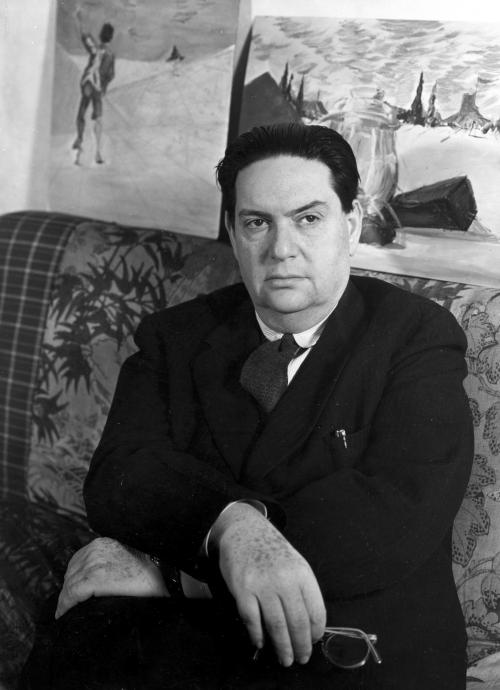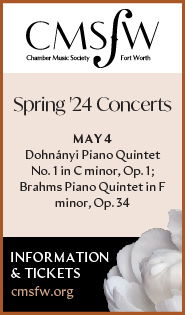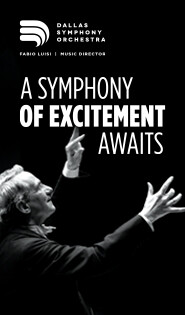Dallas Chamber Symphony explores a rich array of early 20th century music

Darius Milhaud’s “La creation du monde” was performed by the Dallas Chamber Symphony Tuesday night.
Tuesday night at Moody Performance Hall, the Dallas Chamber Symphony led by conductor Richard McKay, produced a succinct and impressive tribute to some of the great music and cinema of the first quarter of the twentieth century.
The era in question was a moment of noisy innovation in music–but also of quiet, often unnoticed exploration as well, as epitomized by Charles Ives’ The Unanswered Question, a work initially composed in 1908 and not performed until 1946.
The relatively small performance space of Moody Performance Hall proved ideal for Ives’ grandly intimate poly-choral effect, with the almost mundanely hymnlike material of the strings floating cloudlike above the pungent dissonance of the winds and the constant questioning of the trumpet. Trumpet soloist Kyle Sherman provided clean clarity in Ives’ adamantly anti-melodic question, while conductor McKay held the ground of the chaotic wind quintet; Brian Satterwhite, on hand as guest composer of the day, served as secondary conductor, anchoring the string quartet against the other conflicting elements in a welcome performance of this early modernist masterpiece.
The program then jumped ahead to the 1920s and French modernist Darius Milhaud’s La creation du monde, a ballet score boldly molding jazz influence and African creation myth. At times quaintly Eurocentric and self-conscious, Milhaud hits his stride toward the end with a falling melodic motif that anticipates Gershwin’s soon-to-follow marriage of jazz and classical form. With strings at one instrument to a part matching winds and a full percussion section with piano, this performance under McKay, like the Ives, presented a meaningful and memorable realization of a landmark of early modernism.
One of the most satisfying elements of the Dallas artistic scene in recent years has been the Dallas Chamber Symphony’s ongoing program of commissioning new scores for presentation with classic silent film. While this practice has, over the past half-decade, focused on premieres, Tuesday night brought an encore of one of the first segments in that project, Austin-based Satterwhite’s score composed in 2012 for Harold Lloyd’s comic masterpiece of 1921, A Sailor-Made Man.
Lloyd’s tale of human folly and redemption, played out by vivid characters in a perpetual flow of gags and misadventures, demands musical interpretation to achieve its full power; Satterwhite’s score beautifully and insightfully answers Lloyd with deliciously whimsical jazz-age motifs and gestures, responding with often subtle detail to all of Lloyd’s visual tricks. Sometimes jazzy, sometimes romantic and sweetly lyrical, and sometimes mildly dissonant, Satterwhite offers the perfect twenty-first-century musical interpretation of 1920s cinema.
McKay and the ensemble of strings and winds (similar to that required for the two earlier works on the program), realized Satterwhite’s insight with lucid precision; McKay has totally mastered the intricate art of matching a live score to filmed visual material. To see this monument of early cinema with live accompaniment-as it would have been seen in its premiere run in the great movie houses of the 1920s-was once again a remarkable cultural experience.


